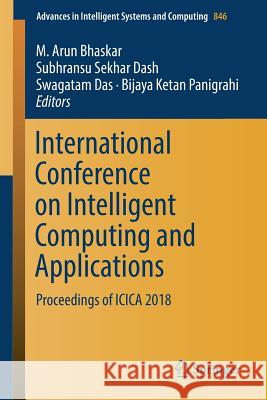International Conference on Intelligent Computing and Applications: Proceedings of Icica 2018 » książka
topmenu
International Conference on Intelligent Computing and Applications: Proceedings of Icica 2018
ISBN-13: 9789811321818 / Angielski / Miękka / 2018 / 404 str.
Presenting original work in the field of computational intelligence and power and computing technology, it focuses on soft computing applications in power systems;











